Beyond raising the flag: Puesto and Weekend Wanda build true inclusion
Every Pride Month, corporate entities switching to rainbow profiles have become a common sight. These symbols of allyship and acceptance don’t come year-round — for some, it’s usually put out there only when it’s convenient.
For the LGBTQ+ community, it’s been a lifelong struggle and fight to celebrate their rights and sexuality. It’s not unusual for them to have their abilities and skills diminished and stereotyped, but true inclusion means deviating from these ingrained prejudices. And one way we can amplify their voices is through supporting businesses they own.
Young STAR sat down with owners of two queer-owned businesses to know what’s it like to build a brand with inclusivity in mind. Miel Ochoa of Puesto and Alan Segui of Weekend Wanda share the same background: they uprooted themselves from the province, steadily built their own network, and are now living out their passions in the metro.
Puesto
It’s post-peak lunch hour. Miel Ochoa (they/them) has just come from the kitchen. It’s a Wednesday and their team is busy cooking for Puesto’s customers, which estimates eight to 100 people a day.
Miel admits they’re often deprived of rest with their day running from 5 a.m. to score the freshest items at the market until 2 a.m. to take in online orders.
Cooking has always taken a huge part in Miel’s interests. They recount their beginnings to third-grade days and the cook-offs they were sent off to in high school. A special education teacher before venturing into business, Miel is also part of the organizers of Bahaghari Metro Manila and Metro Manila Pride.
In the confines of Puesto’s carinderia hangs a rainbow flag — a mirror of its solidarity with the community. ‘It sounds cheesy, but for queer people like us, we have very limited safe spaces. Dito sa Puesto may lugar ka.’
Proudly bannering Puesto as a queer-owned business, we asked why this was critical to highlight. “I want not just the community but also spectators to see that we are capable of doing so much,” Miel explains. “We have to dismiss the preconceived notion that queer people are just limited in these boxes. Our skills aren’t just SOGIESC-based.”
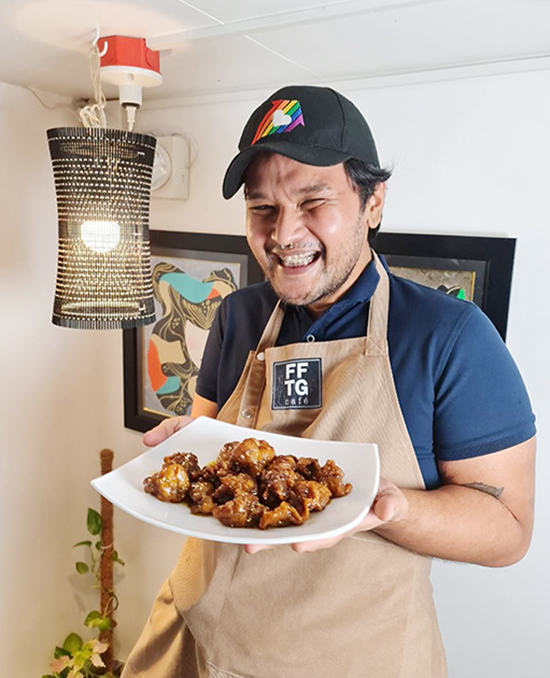
The meaning behind Puesto essentially speaks to the persistent struggle of the LGBTQ+ community. Miel shares it’s always been their dream to have a puwesto, both figuratively and literally, “Puesto is a direktang salin na gusto kong magka-lugar, gusto kong magka-puwesto sa mundo, gusto kong magka-puwesto yung Puesto.”
Food is a communal experience and Puesto brings not just people together, but carves a physical safe space where acceptance is at the fore. “At least man lang sa pagkain, sa pag-exist man lang sa isang lugar, meron akong maibibigay sa kapwa ko lesbiana, bakla, bisexual, transgender.”
And in the confines of Puesto’s carinderia hangs a rainbow flag — a mirror of its solidarity with the community. “It sounds cheesy, but for queer people like us, we have very limited safe spaces. Dito sa Puesto may lugar ka.”
Puesto’s success didn’t come without challenges. With zero capital, Miel powered through with willpower and sheer confidence that their collective would be supportive of their new venture. Approaching Kuya Jihad, a co-organizer of MMPride who knew Miel’s love for cooking, they asked if he could pay upfront for a dish that had yet to be made. “The income from that, I snowballed until I got to where I am now.”
Miel shares they’ve been politically vocal in hopes that people will realize food, like healthcare, should open up conversations about access. “We cannot deny that food is political because it’s about access. Who gets to eat and who starves, who gets sick and recovers. When you think about it, ang daming nagugutom, we need to have a conversation about food.”
Their unreserved stances came with a tradeoff. A few weeks after their store’s opening, a rabid troll left a false review deprecating the brand. But it didn’t take long before it was overturned by reviews from past and actual customers commending Puesto.
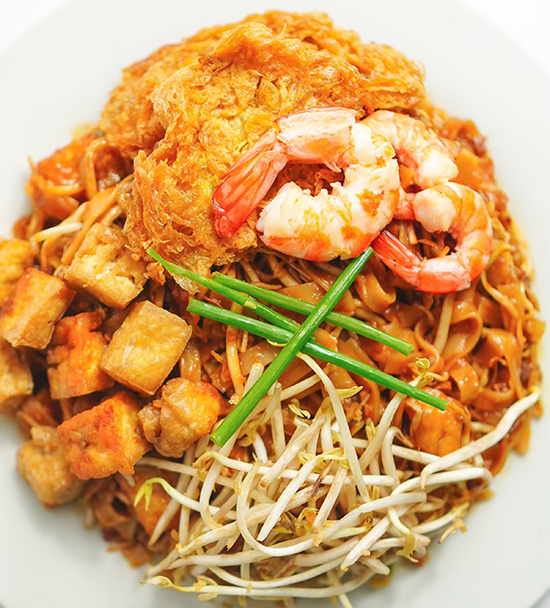
As they actively hold a fort for the community, it’s no surprise that its efforts are returning tenfold. And rightfully so. Giving back has surely become their ethos; Puesto also takes pride in providing jobs for out-of-school youth and housewives.
For their menu, Miel recommends Shrimp Pad Thai (P250/tub), which also comes in vegan and pescatarian options. Known for its sweet tangy flavor, their Pad Thai has gained praise from customers and Thai nationals since the restaurant opened two years back. For vegans, Miel recommends their Orange Tempeh (starts at P425), made from fermented beans marinated for around four hours.
Having had their first physical location put up during a raging pandemic, Puesto is only getting started, and it’s safe to say their dreams will continue to materialize from here on out. One dream is becoming the first household name that comes to mind when thinking of good Asian-fusion comfort food.
Dine at Puesto Carinderia at 32-A Road 20 Brgy Bahay Toro, Proj 8, Quezon City or place orders via Twitter and Instagram.
Weekend Wanda
We always ask: where she is going, who she is going with, and what she is wearing,” says Alan Segui, founder of clothing label Weekend Wanda, during a call sharing their thought process in launching a new collection.
Wanda, referring to the brand name, also serves as the imaginary muse, a woman described as always on-the-go, who throws on a swimsuit and takes off for a sweet vacation. Their colorful bikini and loungewear pieces are trendy with playful cuts to complement one’s physique.
It’s one of the reasons why people love Weekend Wanda. When we post the photos, they see themselves. We don’t go for perfection, but instead realism. Real bodies, real people. That’s a message we want to push out.
Alan, a commercial photographer by profession, started Weekend Wanda in 2019 with his then-boyfriend. While working as a freelancer in a local restaurant, he started conceptualizing a brand initially intended to be menswear, but decided to switch after learning that the market lacked more inclusive and ethically sourced brands for women.
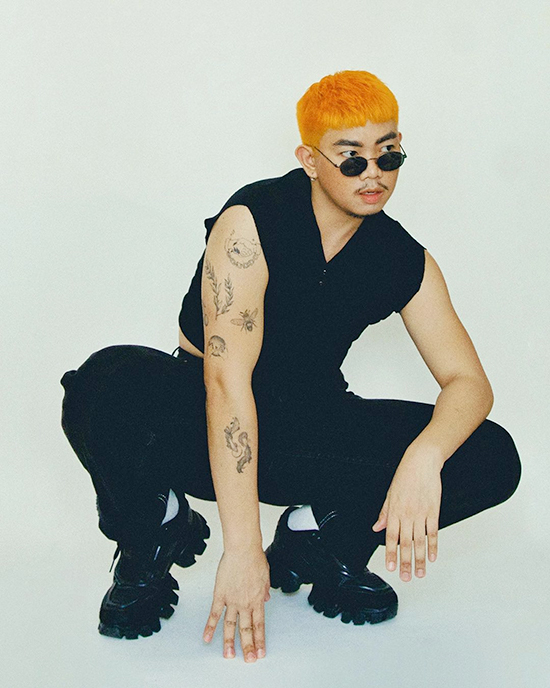
Inclusivity is evident in Weekend Wanda’s values, it makes plenty of space for representation of different gender expressions. It incorporates various spectrums of body sizes and color, including trans women as models for their brand.
“It’s one of the reasons why people love Weekend Wanda. When we post the photos, they see themselves,” Alan says. “We don’t go for perfection, but instead realism. Real bodies, real people. That’s a message we want to push out.”
Supporting local and sustainable practices also goes hand-in-hand in their collections. Their clothes are made by Filipino seamstresses in small batches — an approach that allows them not to simply push sales for the sake of clearing out inventory.
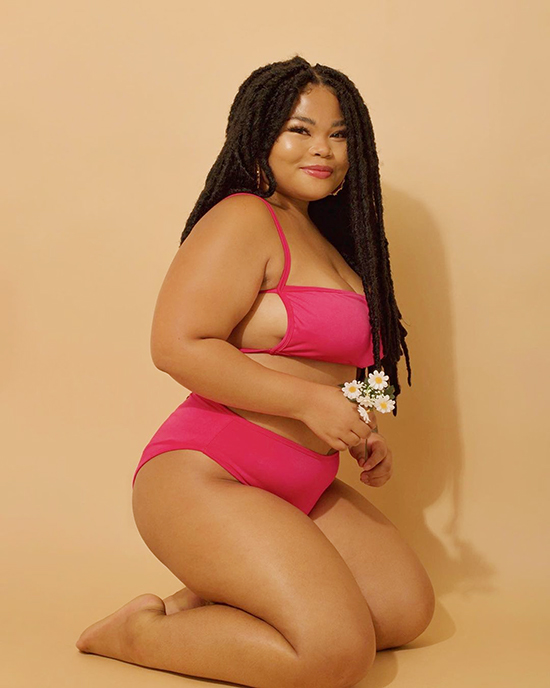
Their collections had been well received by their market, until COVID-19 emerged. For two months they made do with zero income, and despite the unforgiving situation, they still found a way to lend help to frontliners. Alan shares, “We had a collection of turtleneck sweaters that we had reworked and we renamed the piece. All proceeds were then donated to frontliners.”
With the pandemic came another blow: a need to reassess the brand’s position on traveling. Since their collections revolved around sweet escape, it didn’t feel right for Alan to promote traveling even with restrictions loosening up.
As a way to adapt, “We decided to come up with things they can use at home or remind them of memories of places that they love even if they’re just in the comfort of their homes,” he says, alluding to the scented candles they added as new products.
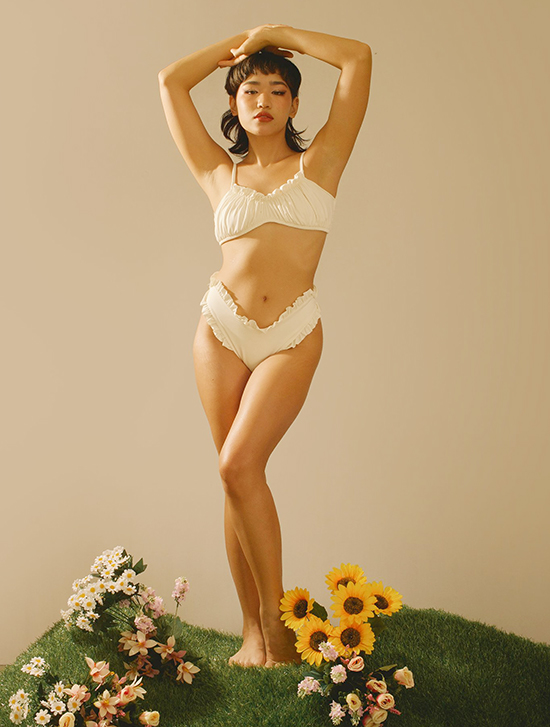
When asked about the community supporting Weekend Wanda, Alan shares, “They’re very vocal, outspoken and creative. These are the things we like to cultivate. We like to talk about things that are relevant and dive into issues that not a lot of brands go for.” Taking a stand on important issues has always been the obvious and rightful choice for them, given their platform.
He then tells how appreciative he is of people openly supporting their small business even in their own little ways of tagging them. “Our name basically gets exposed to people. When you do that, hindi lang brand ang makikilala, but also the people behind it. People doing the same things in our scene, so it’s gonna have a domino effect. If you support one, you support everybody.”
Weekend Wanda is surely out to make changes, whether it’s through standing their ground or showing up for their community to make them feel they’re seen. Their new collection, Wanda’s World, is out this holiday season. It gives its own take on the Y2K trend, and with a huge inspiration that stems from the vibrant gay culture. Still leaning away from promoting travel, Alan shares, these were made for Wanda’s city wear looks.
Shop their collection at weekendwanda.com or message @weekendwanda on IG.


